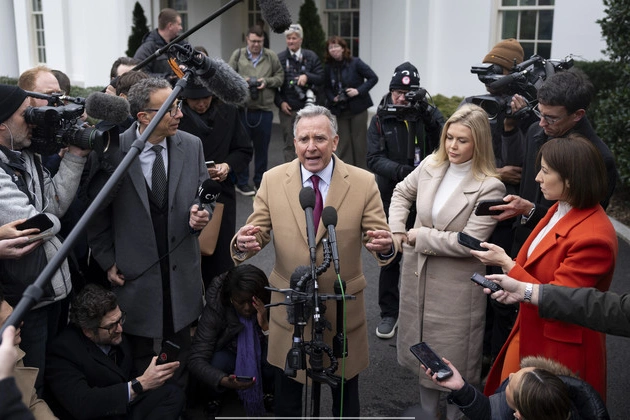
Biden signs defense bill despite transgender care restrictions
Biden Signs Defense Bill Despite Controversial Transgender Healthcare Restrictions
President Joe Biden on Monday signed a $895 billion Pentagon policy bill despite language he said he “strongly opposes” that restricts medical treatment for transgender youth. The National Defense Authorization Act passed with bipartisan support in both chambers after months of negotiations. The final deal dropped some contentious culture war battles, such as measures related to abortions and Pentagon efforts to promote diversity and inclusion in the ranks.
However, a provision, included at the insistence of Speaker Mike Johnson, bans the military’s Tricare health system from covering gender dysphoria treatments “that could result in sterilization” for minors under 18. Some Democrats attacked the language as bigoted and accused Johnson of using it as a wedge issue to solidify conservative support and help retain his position as speaker.
Biden criticized the provision in a statement outlining his objections to the bill. He argued that the measure singles out transgender people and hinders parents from determining the best medical care for their kids. “No service member should have to decide between their family’s health care access and their call to serve our Nation,” Biden said.
Proponents of the measure contend that funding medical care for transgender individuals diverts focus from the military’s core mission. But it faced opposition from dozens of LGBTQ+ and advocacy organizations, who argued it would eliminate potentially life-saving care for transgender youth and compel service members with transgender children to leave the military.
The transgender healthcare language displeased many House Democrats, most of whom voted against the final bill. Ranking House Armed Services Democrat Adam Smith, who led the charge in opposition, called the measure “bigoted against the trans community” and said it would undermine an otherwise bipartisan bill.
House Armed Services Chair Mike Rogers (R-Ala.) spearheaded provisions to improve pay, housing, childcare, and medical access for troops and their families. The legislation, which outlines annual Pentagon policy and military budget priorities, is one of the few major bills that has cleared Congress each year for more than six decades.
The NDAA only authorizes funding and doesn’t actually allocate money. Congress must still enact a full fiscal 2025 spending bill when it returns early next year. While it’s unclear how Trump will approach defense spending, GOP hawks are hoping new Republican majorities in both chambers could unlock more military cash.
Senate and House Republicans highlighted victories on cultural issues, including a yearlong hiring freeze for diversity, equity, and inclusion positions within the Pentagon and a prohibition on Defense Department academic institutions or military training programs promoting critical race theory.
Despite controversies, the signing of the defense bill marks a significant moment in military policy and budgeting, setting the stage for future debates and decisions in the defense sector.















